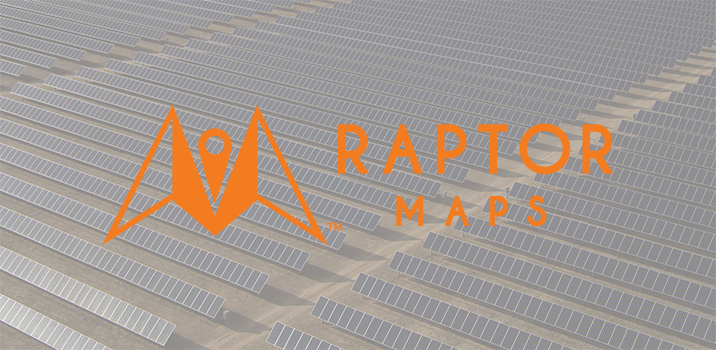Solar energy is growing by the day, and Raptor Maps provides a software solution that provides the data to go along with solar sites. The company offers analytics and insights, as well as productivity solutions, which can help any company make the most out of solar energy. While that might be an oversimplification of what the software can do, it is a powerful tool for any business involved with solar sites. Read the article below to learn more about Raptor Maps and its plans for its latest funding.
Raptor Maps, the leading provider of solar lifecycle management software, announced it closed $22 million in Series B funding to supercharge its groundbreaking Raptor Solar software platform. The round is led by Canadian private investment firm MacKinnon, Bennett & Co. (MKB), which specializes in accelerating innovation in energy, transportation and climate tech. Other investors include the Microsoft Climate Innovation Fund, Blue Bear Capital, DNV, Buoyant Ventures, Congruent Ventures, Data Point Capital and ENGIE New Ventures.
Raptor Solar is an advanced software-as-a-service platform for the entire solar lifecycle — from financing and development through operations. Raptor Solar lets utility-scale and C&I solar companies standardize and analyze data, collaborate, optimize PV assets, reduce risk and ultimately lift financial return.
The SaaS platform serves as an auditable system of record featuring state-of-the-art digital twins of solar assets. An industry first, users can scan in module serial numbers to streamline warranty claims and verify supply chains. Subscribers benefit from inspection analytics, productivity tools and ability to quantify financial loss and even benchmark portfolios against Raptor Maps’ global database. The software solves major growing pains across solar finance, development and asset management.
“We’re very excited about our investment in the most sophisticated solar analytics and insights platform on the market,” says Chanel Damphousse, Partner at MKB. “Raptor Maps has some of the most intelligent and skilled experts in the solar industry, and their product roadmap represents a bold vision for how data married with productivity tools unlocks value across the lifecycle of solar assets.”
The funding will enable Raptor Maps to accelerate its hiring plans with significant investment in product, software and data science. The company will rapidly advance its feature-rich product roadmap with more functionality related to workflow automation, work orders, investor reporting and insights powered machine learning.
“Making the solar industry more profitable represents progress towards advancing a sustainable energy future,” explains CEO and co-founder Nikhil Vadhavkar. “Our mission is to build software that enables solar energy to scale. We’re delighted to have partners with the right expertise to support our ambitious plans.”
The world is facing an energy crisis in terms of climate change and the geopolitical need for energy independence. Energy companies are pushing to decarbonize, alleviate bottlenecks and rapidly scale renewable energy. Larger players and portfolios mean now more than ever that software is needed to ensure capital and labor are intelligently managed.
“To meet the world’s urgent climate goals, the energy industry needs tools to become nimbler and deploy renewable energy quickly,” explains Mark Kroese, General Manager, Sustainability Solutions at Microsoft. “Raptor Maps is digitizing solar supply chains, deployment and operations, which will help accelerate the global transition to cleaner energy solutions.”
Raptor Maps’ insights are powered by machine learning and their industry-leading data model created from over 50 GW of solar power across 40 countries. Their 2022 Global Solar Inspection Report finds that 2.6% of solar power is affected by anomalies.
The company’s customers include some of the largest owners, operators and builders in the world including Tesla, SOLV Energy, Rosendin Electric, Cypress Creek Renewables and McCarthy. Raptor Maps’ founders have their roots in MIT and the Y Combinator-born firm is a member of climate tech community Greentown Labs.
The funding is the latest in a string of recent raises in the solar space, indicating substantial opportunity in the industry. The global solar energy market is projected to grow to $223 billion by 2026, according to Allied Market Research.
The original article can be found on North American Clean Energy’s site.
Credit: Source link


Comments are closed.